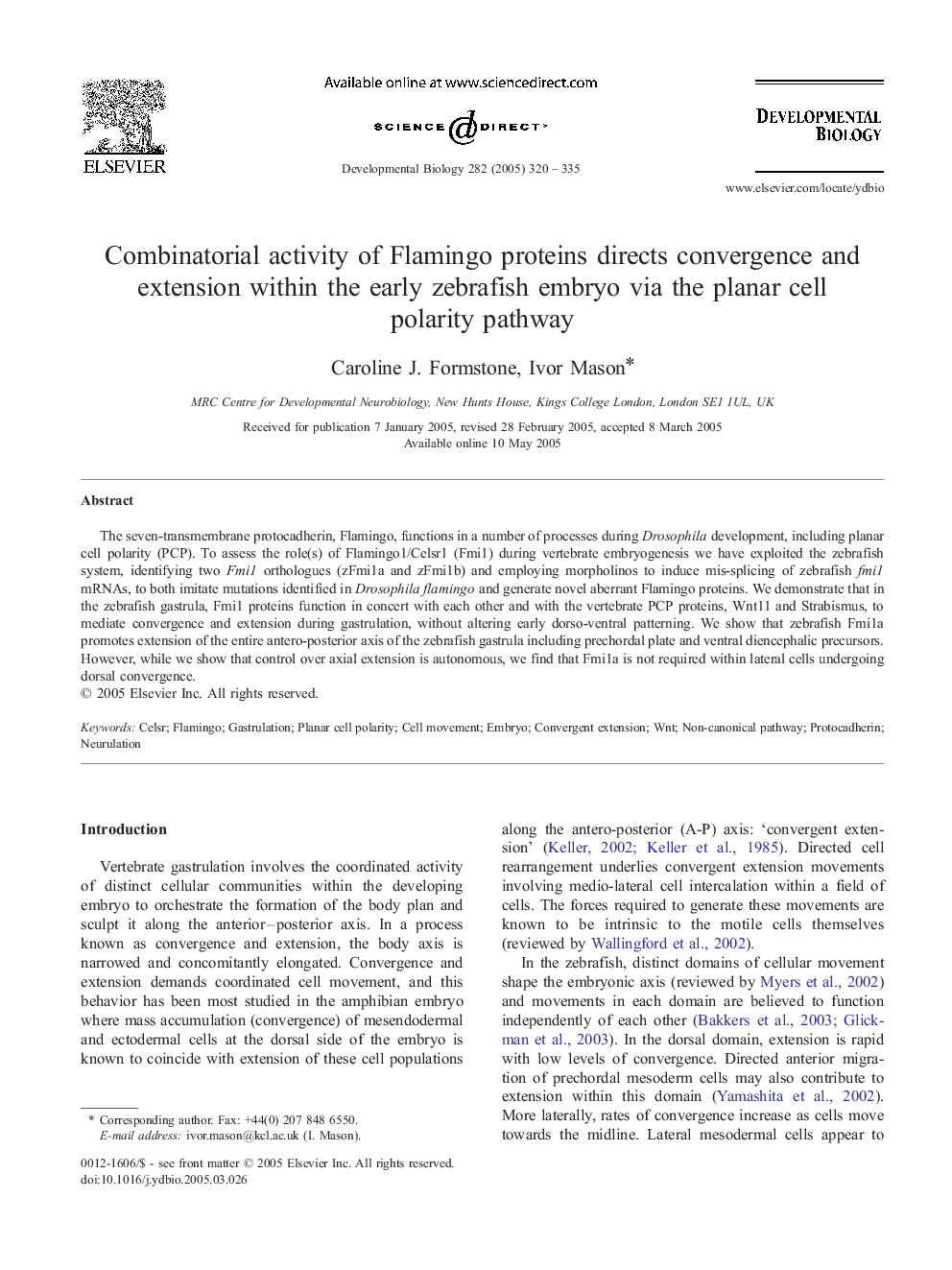| Article ID | Journal | Published Year | Pages | File Type |
|---|---|---|---|---|
| 10934115 | Developmental Biology | 2005 | 16 Pages |
Abstract
The seven-transmembrane protocadherin, Flamingo, functions in a number of processes during Drosophila development, including planar cell polarity (PCP). To assess the role(s) of Flamingo1/Celsr1 (Fmi1) during vertebrate embryogenesis we have exploited the zebrafish system, identifying two Fmi1 orthologues (zFmi1a and zFmi1b) and employing morpholinos to induce mis-splicing of zebrafish fmi1 mRNAs, to both imitate mutations identified in Drosophila flamingo and generate novel aberrant Flamingo proteins. We demonstrate that in the zebrafish gastrula, Fmi1 proteins function in concert with each other and with the vertebrate PCP proteins, Wnt11 and Strabismus, to mediate convergence and extension during gastrulation, without altering early dorso-ventral patterning. We show that zebrafish Fmi1a promotes extension of the entire antero-posterior axis of the zebrafish gastrula including prechordal plate and ventral diencephalic precursors. However, while we show that control over axial extension is autonomous, we find that Fmi1a is not required within lateral cells undergoing dorsal convergence.
Keywords
Related Topics
Life Sciences
Biochemistry, Genetics and Molecular Biology
Cell Biology
Authors
Caroline J. Formstone, Ivor Mason,
